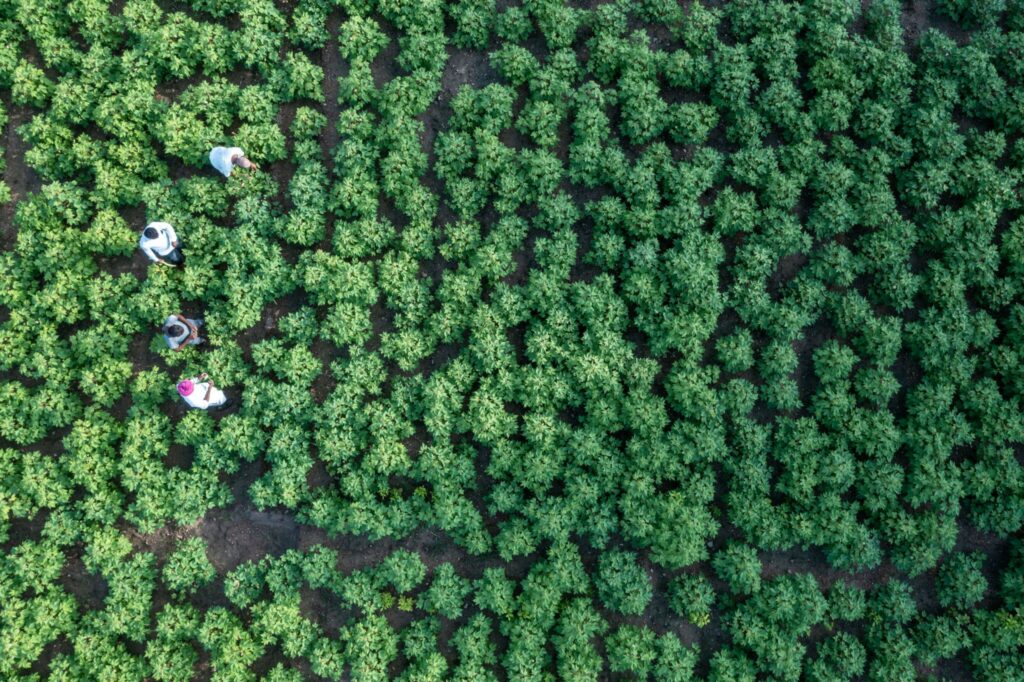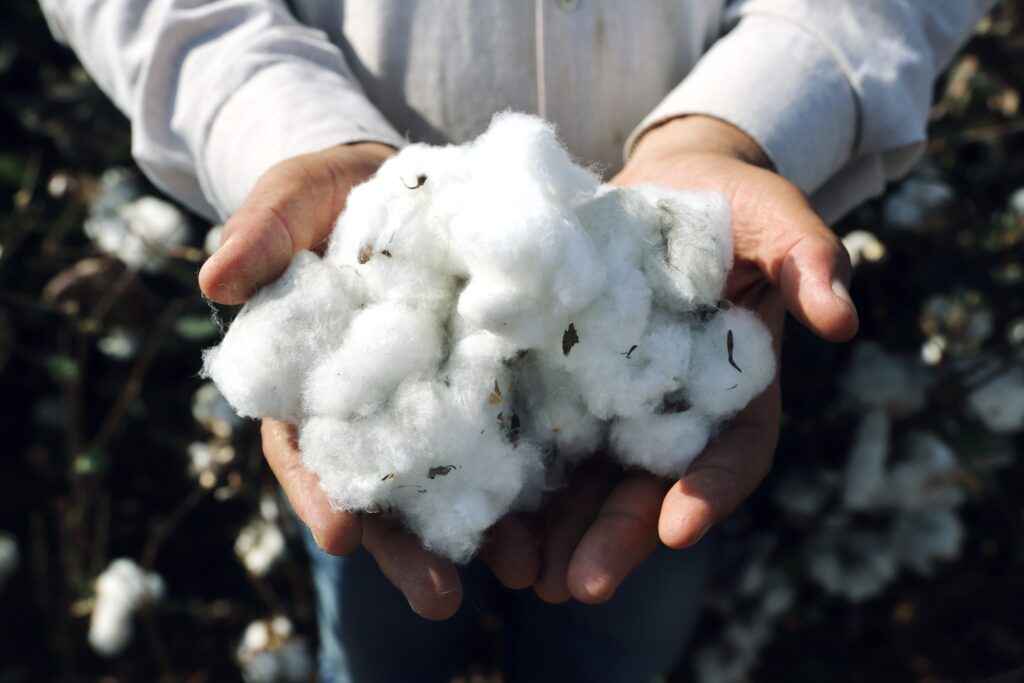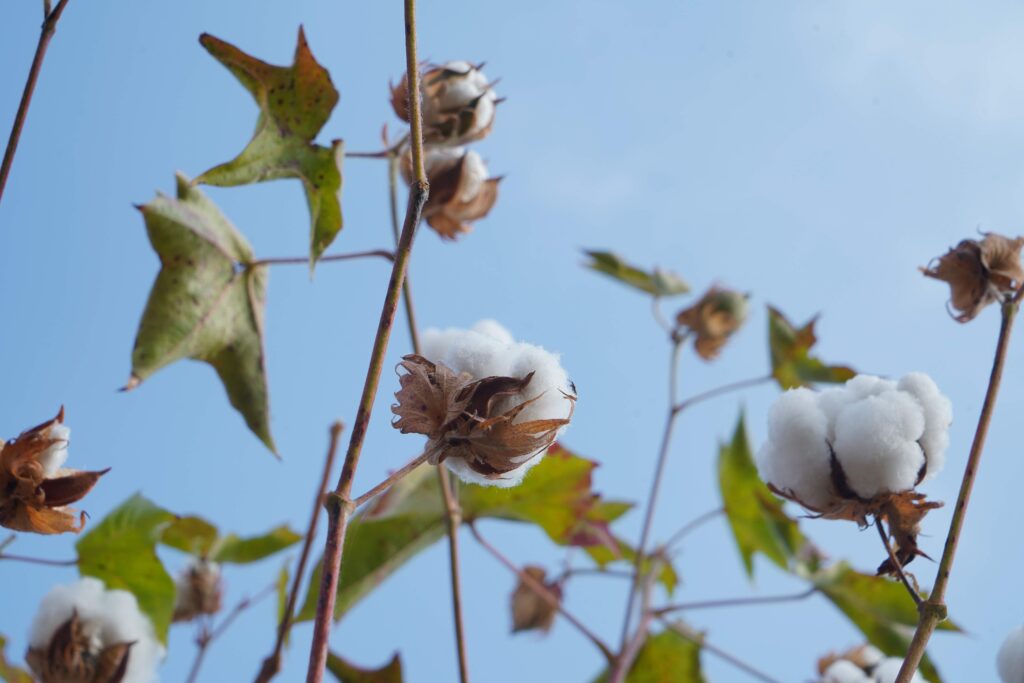A range of organisations from across the textile supply chain have recently joined OCA to support us in our mission to unleash the organic cotton effect – organic cotton’s potential for positive impact, from field to fashion, for people and the planet. Among our most recent new Contributors are Arvind Limited, bonprix, G-Star RAW, Levi Strauss & Co., Norlanka Manufacturing, The Sting Companies and Yumeko.
We spoke to a few of our new Contributors to find out about the importance of organic cotton and its impact, their priorities in raw material sourcing, driving sustainability goals, and ultimately why they decided to join OCA.
Take action together
Before OCA was established in 2016, the organic cotton sector was fragmented. There was no common vision to scale up and make organic cotton farming pay, especially for the farmer. Since then, OCA has united the sector to unleash the Organic Cotton Effect. Key supply chain players across the sector have collectively committed to change, meaningful and measurable.
Our OCA community of Contributors champion, grow, supply, and buy organic cotton developing a more transparent, resilient, and responsible supply chain – with successful farmers and a planet protected for the future.
When asking Punit Lalbhai, Executive Director of Arvind Limited, one of India’s leading textile manufacturers, about the value he finds in joining OCA, he shared ‘Once Arvind associated with OCA as an Implementing Partner, we learnt of the value it creates in bringing cohesion, a strong unified voice, and collective resources in solving problems faced by all stakeholders in the sphere of organic cotton. I am looking forward to learning from the wealth of experience that resides within the board and the wonderful staff at OCA.’
The combination of leveraging the combined strength of industry partners alongside the action within one’s own supply chain to improve the impact of (organic) cotton sourcing is also highlighted by Hamburg-based fashion retailer Bonprix. Stefanie Sumfleth, VP Corporate Responsibility & Technical Product speaks to how joining OCA is a natural step in their broader sustainability strategy for cotton. “At around 50%, cotton is our most widely used fibre. Today, 99% of our purchased cotton contributes to more sustainable cotton farming. By 2025, at least 25% of the cotton we use should be fully certified and traceable – from the fields to the finished product. We believe that contributing to the OCA is an important step in achieving our goal while leveraging the strength of the industry for change.”
Improve farmer livelihoods through transparency
Improving farmer livelihoods happens from the ground up by laying the foundations of transparency. OCA’s direct-to farmer sourcing model was developed to create these foundations. It supports farmers with training and prioritises their prosperity by creating a secure market for farmers to sell their organic cottonseed, advocating for better prices for organic cotton, and creating the visibility needed at the source of organic fibre.
Sri Lanka based manufacturer Norlanka, shares OCA’s vision on the positive effect of organic cotton – we spoke to Sanjay Khurana, Director of Sales & Marketing and Sourcing: “Norlanka is always looking for ways doing things in a more sustainable, transparent way. Currently, 100% of the cotton that we use for our manufacturing is obtained from sustainable sources. We want to continue in this trajectory together with the OCA and contribute to the ‘Organic-Cotton Effect’ that the founders of OCA have envisioned for the industry. We are also excited to work with like-minded brands and supply-chain partners.”
Paulien van der Vegt, Chief Product Officer at G-Star RAW, a brand that has innovation, sustainability, and creativity at its core, speaks on the importance of transparency in the sector. “In our mission to improve our social and environmental impact at every step, one of our commitments is that we will use only organic, recycled, bio-based and compostable materials by 2030 latest. Through our partnership with OCA, we aim to support and scale organic cotton farming, so that not only we can meet our targets, but the entire industry can move towards using more sustainable materials. And because of OCA, we can take the first steps in building direct contact with the farmers, tracing our organic cotton right back to its roots”
Measure impacts at the farm level
OCA invests in data tracking and verification processes to monitor environmental and social benefits at the farm level. This ensures that cultivating organic cotton in our Farm Programme has measurable benefits for farmers and positive impacts for the land too. We continue to enrich OCA’s social and economic data reporting capabilities with environmental impact metrics to clearly show the positive impact of organic cotton farming for the whole value chain.
Levi Strauss & Co. (LS&Co.) is one of the world’s largest brand-name apparel companies and a global leader in jeanswear, takes the first steps into direct sourcing with measurable results. “We are proud to join Organic Cotton Accelerator, because for the first time, we’ll be able to source direct from organic cotton farmers and work with others to identify scalable solutions for the industry. Organic Cotton Accelerator is unique in that it unites the global organic cotton sector. It enables measurable improvements to farmers’ livelihoods and local communities, creating conditions for change. This partnership strengthens our strategy to source more sustainable cotton for our products and provides new opportunities to solve the challenge facing our industry.” Jeffrey Hogue, Chief Sustainability Officer.
“Yumeko, as a bed- and bathroom textile brand, strives for a net-positive impact from our business activities”, says Rob van den Dool, Founder of Yumeko. “Only by partnering up with all stakeholders can we bring measurable social and environmental impact with organic cotton farming, as well as bring supply security to our production chains. Let’s help increase the global organic cotton supply, which is still only 1 percent of global production. Let’s empower organic cotton farmers, enabling measurable improvements to farmers and local communities.”



